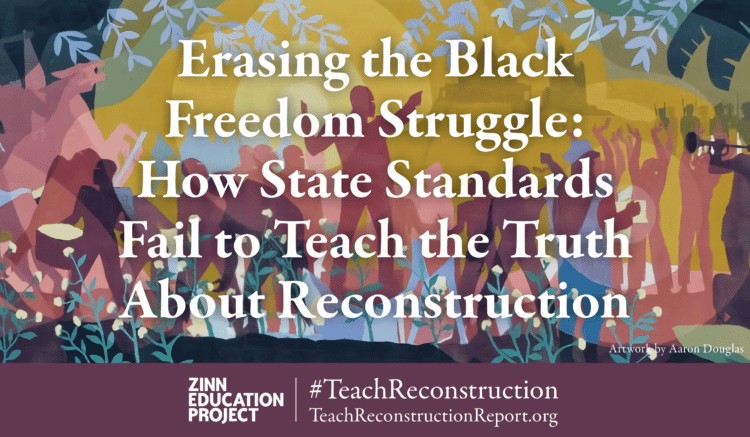Signatures
This is the list of people who have signed the pledge or petition to date.
Joshua Ezekiel | Salinas, CA
The stubborn survival and expansion of systemic racism have their roots in the resistance to, and end of Reconstruction.
Derek Alderman | Knoxville, TN
Caprice Irving | Woonsocket, RI
James Berkheimer | Fremont, CA
The failure of Reconstruction explains current racial politics and the ignorance of most people in this country about racism.
Jon Krupp | Foster City, CA
Jonathon Krupp | Pacifica, CA
Rayna Walters | New Haven, CT
Kathleen Mahoney | Coventry, CT
Malcolm Gatison | Bellmead, TX
Teaching about the Reconstruction era is pivotable to our students learning today. The history that is being taught in America is one-sided and always has been. It is a great opportunity for students to know the truth of what really happened and why.
Olivia Hussey | Hartford, CT
Selamawit Washington | Alexandria, VA
So that every child develops an understanding of the complexity of history and the people who made it. So every child can make the connection between the past and present, and understand how systems of oppression were created.
cathy dale | Chicago, IL
Stacey Uy | San Diego, CA
Students, especially students of color, need to be exposed to this time of resistance, organizing and possibility. The Reconstruction era teaches us so much about the painful connection of slavery to our modern system of incarceration. The strategies of the post-Reconstruction era have been utilized again and again. It's time to equip the next generation with the truth and tools they will need to end the cycle.
Regina Kelly | Lansdale, PA
Haydee Burrola | Covina, CA
Melissa Veloz | Harrisburg, NC
It is important to teach the Reconstruction Era so that we as a people/nation can understand how systematic racism has been calculated and purposefully entrenched in the very fiber of America, as the means for political, economic and social success was ripped right out from under African Americans and our government did very little or anything at all to protect AA. When we know our history we can hopefully arm ourselves with the tools to create successes in the future.
Fergus M. Bordewich | San Francisco, CA
Vincent O'Neal | Fort Washington, MD
Matthew Lankford | Granger, IN
Angela Paar | Minneapolis, MN
Kristi Lentz | Berkeley, CA
Jenna Alden | Maplewood, NJ
The Reconstruction era provides a pivotal dose of hope-- what Eric Foner calls "interracial democracy" when black Americans were elected to local, state, and national office-- but also a case study in how that hope was systematically dismantled. We need the positive examples to understand that there is nothing inevitable about systemic racism in this country; we need the tragic history to help us understand the many systems that need to be deconstructed snd rebuilt if we ever want to have true interracial democracy in this country.
Amanda Moon | Longmont, CO
Daniel Kysela | Bridgeville, PA
When it comes to current discussions of racism, so much can be learned from the actions of our country during and after the Civil War. While this era is often skipped over, it is a great look at the origins of many of the problems we can still see today
Ann Holder | Brooklyn, NY
As someone who has been teaching Reconstruction for quite a while now, it is clear that's it is ever more important for students to understand how much that period both shaped and produced the crises of racism that have continued to persist throughout the life of the nation. This history is pivotal for students to fully grasp the summer of 2020, and the unfolding demands for long-belated justice in the present, and the past.







Twitter
Google plus
LinkedIn